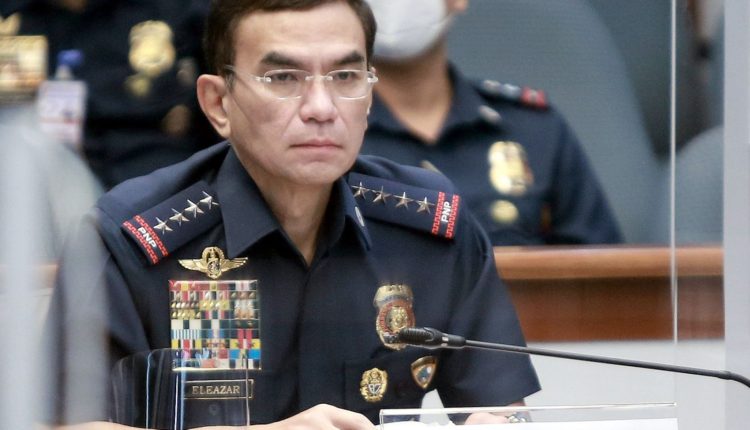‘Let us not forget our heroes’– Eleazar
Says BSP plan to remove PH heroes in new P1000 bill a “dishonor”
FORMER Philippine National Police director general, Guillermo Lorenzo Eleazar, urged the Bangko Sentral ng Pilipinas (BSP) to reconsider its decision to remove the images and names of three Filipino heroes who were victims of Japanese imperialist aggression during World War 2 in the design for the new P1,000 bill.
Eleazar, the well-loved and highly respected police general who is now running for senator, reminded Philippine bank officials that removing the names of former Supreme Court Chief Justice Jose Abad Santos, former Philippine Army general Vicente Lim and social worker and Girl Scout of the Philippines (GSP) founder, Josefa Llanes Escoda from the new bill “does not only dishonor them but also deny the present and future generations of their identity as Filipinos.”
Abad Santos is the only prominent Filipino official during the Japanese occupation to openly refuse to cooperate with the Japanese and paid for it with his life when he was executed on May 2, 1942, over his refusal to swear allegiance to the Japanese flag.
He famously told his son, Pepito, not to cry over his impending death as it is an “honor to die for one’s country. Not everybody is given that chance.”
Lim was the first Filipino to graduate from West Point, was among the founders of the Boy Scout of the Philippines (BSP) and a survivor of the infamous ‘Bataan Death March’ during the Japanese aggression in the Philippines.
After his release, he continued fighting the Japanese Imperial Army and was captured and subsequently incarcerated at Fort Santiago where he was heavily tortured.
The exact date of his death was unknown but it was established that Lim was among the many Filipino guerillas beheaded by the Japanese in 1944 and buried in a mass grave at the Chinese cemetery. His body, along with the other victims, was never found.
Aside from founding the GSP, Escoda was also an advocate for women’s rights; she and her husband, Antonio Escoda, were active in their support for Filipino freedom fighters and ended up being hunted by the Japanese. They were captured in 1944 and incarcerated in Fort Santiago.
Antonio was also beheaded by the Japanese along with Lim in 1944 while Escoda was last seen alive but severely beaten and already very weak on January 6, 1945. Like her husband and Lim, Escoda’s body was never found.
“Heroes are the pride and the inspiration of a nation,” Eleazar stressed.
“The least that we could do to honor them is to immortalize their sacrifices and contributions in order to constantly remind the present future generations of what we have been through and how we come to enjoy now the comfort of having a nation of Filipinos,” said Eleazar, whose father, Victor, was also World War 2 veteran.
“In the case of Josefa Llanes Escoda, General Vicente Lim and Chief Justice Jose Abad Santos, they serve as the mirror of who we are and what we should be as Filipinos,” he added.
The former national police chief also stressed: “Every coin and every bill is itself a piece of Philippine history.
“Sa halip na magbawas, mas maganda sana kung magdagdag pa nga tayo upang araw-araw ay mapaalalahanan ang ating mga kababayan kung gaano kadakila ang ating lahi.”
As a son of a World War II veteran, Eleazar said he would see how proud his father and his fellow veterans whenever they retell their touching stories of how they fought and stood their ground against the Japanese invaders—and how they lost friends and relatives in the war.
“Kaya ramdam ko at nauunawaan ang sentimyento ng mga anak ng beterano tungkol sa desisyong ito.
“Ang tatlong bayani na nasa kasalukuyang P1,000 bill represent the stories of each and every Filipino World War II veteran,” he said.
Eleazar also noted that the BSP’s decision to instead put the Philippine eagle in the new bill is already facing wide criticisms, among them, that the BSP even bungled in giving its correct scientific name
Eleazar added that while he understands the arguments raised by the BSP for pushing for polymer banknotes especially on the aspect of security, he said it would do no harm if the current appearance of the peso bill would be retained.
He also urged the BSP to reconsider the concerns raised by the abaca farmers who said that the new polymer banknote would affect the local agriculture industry, particularly abaca farmers.
At present, Philippine banknotes are made of 80 percent cotton and 20 percent abaca.



